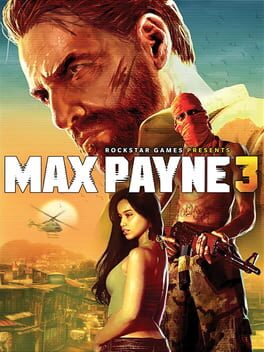I can’t speak to what genre pretensions the Max Payne series held before the IP’s third entry, having never played those first games for myself; Remedy have not yet proven themselves to be a consistent developer for me, having made at least a few games which ranged from downright rotten, such as Alan Wake, to mediocre fare worthy only of listing in internal documents for their legal department, such as Quantum Break or the Crossfire campaign. Despite those dismal dregs though, one excellent game helmed by their studio, Control, while not exciting me as of yet to dive through hours of their backlog, at least maintains some ear perking for the studio. So I left the Max Payne series alone - I enjoy noir pastiche just as much as the next person, but I don’t need to wrestle my way through the muddy channel games waded through on the way from Tomb Raider to Gears of War when I have Stray Bullets, The New York Trilogy, and Brick at my disposal. That said, after hearing for years the critical discussion on how Max Payne 3 transformed the series’ neo-noir negging into a wash Michael Mannian existential burden, I thought that the experience would at least breeze by quicker than any involving emulating the previous two entries. After playing the game, and the experience proves for me I still have very little if any particular love for Rockstar, I think I had the entire thing backwards. Max as a character is, I think, worth anchoring a world around, certainly in a way that Alan Wake never manages to deserve, and the gameplay in Max Payne 3 has moderately solid bones which substantiate more the desperation and devil-may-care attitude to his mortality than other third person shooters, although those duck and cover mechanics are slathered in technical and design encounter muscles overgorged on the steroids that Rockstar insists in putting into every game they’ve ever had the misfortune to direct. The writing is lightly hammy, intensely melodramatic, yet conceived of with a grandness that doesn’t overbear on or overreach its scope, walking that fine line between truly sincere noir stories such as In a Lonely Place and totally absurd tales such as Dark City. Max’s narration in particular anchors the world, with Herculean strength too, given the mawkish brutality of Rockstar’s Brazil and Hoboken, allowing the player to, in equal measure at least to Payne, take nothing too seriously without losing the human stakes involved. The weirdest and least eloquent way I can describe it is if someone took Hot Fuzz, which upturned the conventions of Michael Bay films with bold miniaturization, and made a full right turn on that film’s right turn, back into sincerity without losing the heart it gained by filming actual humans with actual hearts in place of Bay’s nihilistic super killers.
The play, as I can’t compare it to the previous Payne games, is fine to paltry. The shooting gets stale very quickly and any exploration is so pointlessly barren that to move in the world is to render all the detail of the story into boxy, Source engine corridors. Rockstar’s crasser elements come out in force whenever they are not remaining true to the strength of the game, lovingly framing the destruction of the human form with borders of bullets and bombs. Still, it was never actively frustrating or painful, and when soundtracked by the sultry sweet tingle of Payne’s narration, it made the 10 hours go by like butter and brown sugar.
The play, as I can’t compare it to the previous Payne games, is fine to paltry. The shooting gets stale very quickly and any exploration is so pointlessly barren that to move in the world is to render all the detail of the story into boxy, Source engine corridors. Rockstar’s crasser elements come out in force whenever they are not remaining true to the strength of the game, lovingly framing the destruction of the human form with borders of bullets and bombs. Still, it was never actively frustrating or painful, and when soundtracked by the sultry sweet tingle of Payne’s narration, it made the 10 hours go by like butter and brown sugar.
